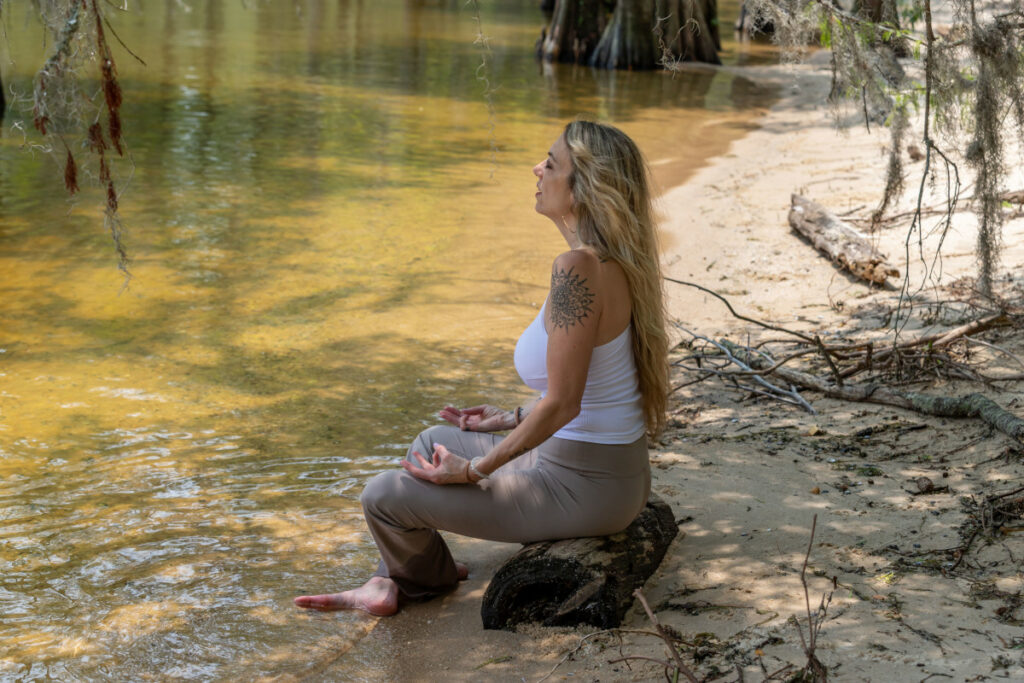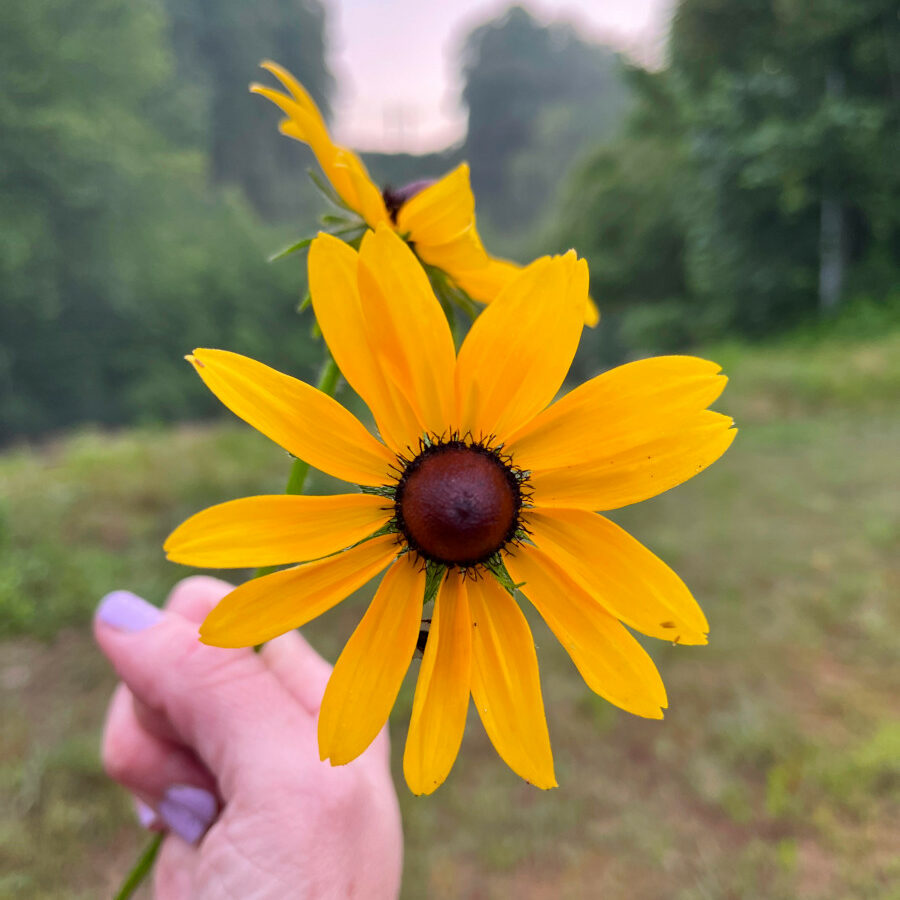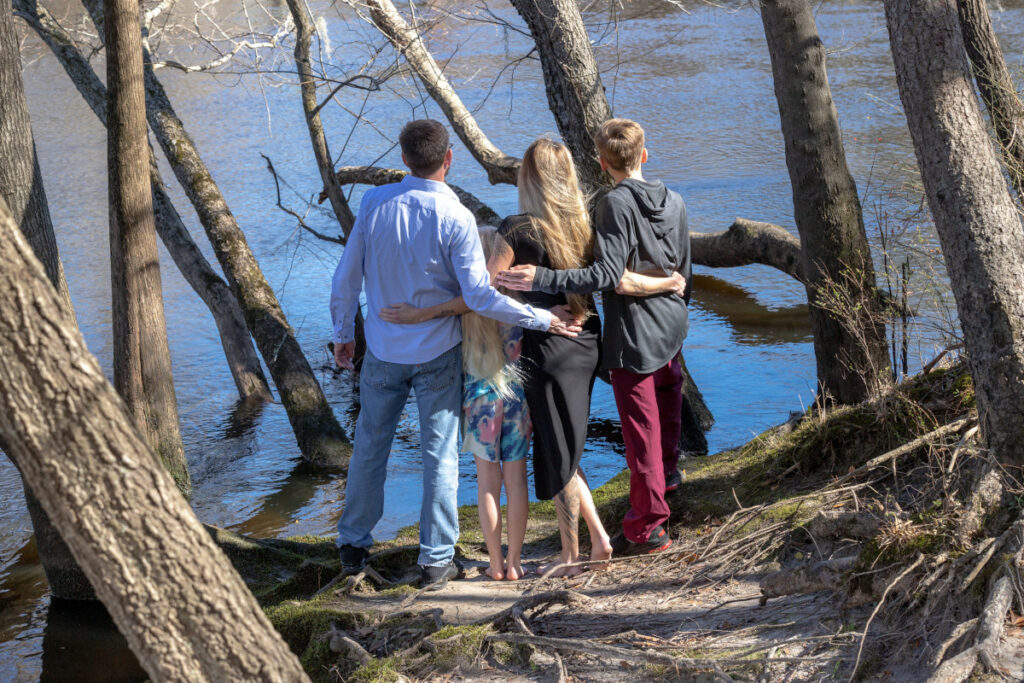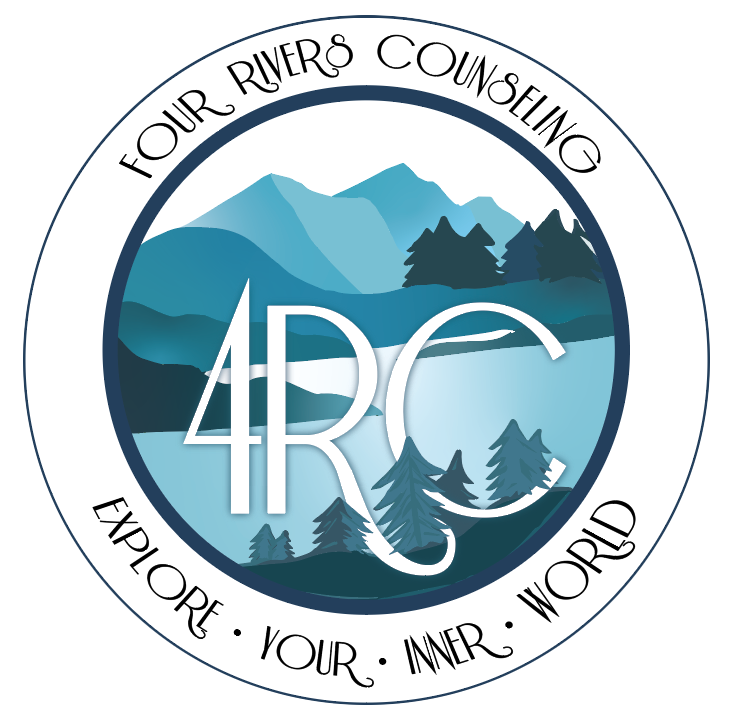Nature Therapy
After spending countless hours in Nature with her family during COVID, Jenny found great restoration in Nature from the endless stress, grief, and social disconnection of the pandemic. Thus, Four Rivers Counseling was born on the banks of the Smith River when Jenny became determined to bring these sacred, healing elements to her clinical work with clients.
Presently, Nature Therapy – also known as “green” or “eco-therapy” – has become a hallmark of Four Rivers Counseling’s therapeutic approach and brand. Jenny uses every opportunity to utilize the healing properties of Nature in each interaction with clients.
4RC’s Nature Therapy program provides a separate assessment and intake process to ensure that the outdoors are a safe and clinically useful approach to help each individual client, including those with anxiety, depression, grief and loss, and PTSD. This program is not appropriate for those with phobias or fears related to nature.
Jenny enjoys sharing with clients aspects of her intensive nature based training from the Mindfulness Based Eco-therapy Facilitator Certification Course, accredited by the National Board for Certified Counselors.
Four Rivers Counseling’s Nature Therapy intentionally weaves the sacred, healing elements of Nature’s restorative powers to each client on their unique healing journey. Clients may enjoy elements of Nature Therapy in private, outdoor settings, in Four Rivers’s indoor office which is covered with greenery and plants from floor to ceiling, in Telehealth sessions, gracing the background of outdoor and indoor sessions.

What is Nature Therapy?
Nature therapy is sacred and can be rooted in various cultural, spiritual, and philosophical perspectives. Nature therapy also allows for reconnection to the Divine, through natural, symbolic elements such as trees, mountains, rivers and animals, sacred expressions of a higher power.
Symbols found in Nature are woven into each therapy session, evoking a sense of sacredness. A tree might symbolize strength and resilience, a river might represent the flow of life, and mountains might embody a sense of stability and transcendence.
Nature can provide symbolic meaning that may help individuals process their grief, anxiety, depression, and trauma. For example, the changing seasons or the life cycles of plants and animals can be metaphors for the cyclical nature of change, including life and death, providing a framework for understanding the impermanence of existence.
Processing trauma in nature, or indoor “green” environments, is calming and predictable, creating a sense of security.
Elements of Nature Therapy
Nature Therapy also involves Grounding Techniques. Therapeutic activities that promote grounding include walking barefoot on the ground, feeling the texture of soil, or focusing on the natural elements around, which can help counteract feelings of disconnection.
Nature engages Sensory Stimulation, engaging multiple senses, offering a rich sensory experience. Reconnecting with positive sensory experiences can gradually build a more positive relationship with our bodies and surroundings.
Being in nature naturally encourages Mindfulness and Presence. The sights, sounds, and smells of the natural environment promote awareness of the present moment, helping shift focus towards more positive aspects of life.


Benefits of Nature Therapy
Nature has been shown to have a positive impact on the autonomic nervous system, helping to regulate stress responses. This regulation can be particularly important for those experiencing heightened states of arousal or dissociation.
Nature Therapy creates a state of awareness that allows individuals to connect with the beauty and intricacies of the natural world, and the world “within,” on a profound, new level.
Nature has been shown to dramatically reduce stress levels. The sights and sounds of nature, such as birdsong or the rustling of leaves, can have a soothing effect on the nervous system.
Other benefits of Nature therapy include outdoor activities such as walking, hiking, or gardening. Engaging in physical activity can help release endorphins, which are natural mood lifters.
How Nature Therapy Works
Nature therapy can be done individually or in groups. Engaging with others who share similar experiences in a natural setting can create a supportive community.
Some people find a sense of connection to something greater than themselves in nature—whether it’s a spiritual or transcendent experience. This connection may offer comfort and a broader perspective on the challenges life can bring to all.

